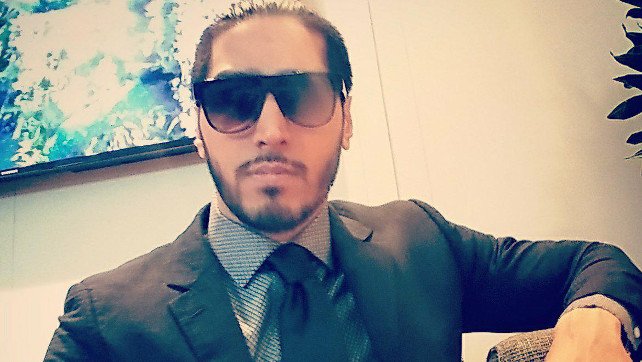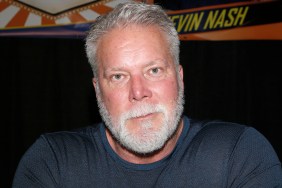205 Live Superstar Mustafa Ali was today’s guest on the Chasing Glory with Lilian Garcia podcast. Ali opened up to host Lilian Garcia about his time in WWE 205 Live, navigating the world of professional wrestling as a Muslim, his recent SmackDown Live match against WWE Champion Daniel Bryan, and the dangers of overworking.
(Transcription credit to Michael McClead for Wrestlezone.com)
On Alleviating Pressure & Working His Dream Job:
I come to work now – there is this intense passion for putting on the best possible match and we all know there is a lot of red tape. Sometime you feel like you can’t do what you’d like to do because it’s not about you. It’s about the show as a whole. I’ve learned to start reading the show as a whole. What’s the show trying to accomplish? Not just my match. What’s the show trying to accomplish today? That’s how I alleviate a lot of the pressure I put on myself. Sometimes, it’s not about you. It’s about the show, so that helps. I’m having the time of my life. It’s my dream job and I’ve been chasing it forever. I’m sure I’ll offend someone with this, but I think it’s the hardest work in the locker room in the industry right now.
On Life After 9/11 As A Muslim:
I was in high school when 9/11 happened. I didn’t experience any sort of discrimination or racism that was justified in their eyes. Before it was just random jokes like ‘Camel jockey’ or ‘Did your uncle own a gas station?’ Just HAHA. It was people I knew. I wasn’t beat up because I was brown. It wasn’t like that at that time. It was like, ‘Are you gonna be Aladdin for Halloween?’ It was really just pop culture references. It wasn’t hateful, you know what I mean? 9/11 goes down and it doesn’t process in my mind, the aftermath. I just go, ‘Oh my God, this is terrible. People died.’ The way I’m watching the monitor, I felt like I’m an American. I felt that pain of people dying. This was the first time in my entire life where I was filing something. I had the radio on. I was cutting newspaper clips. Then the aftermath starts coming. There was never anything crazy; but, I knew I was different from that point. In high school we were encouraged to talk about it. I would be sitting third or fourth row and someone would be sitting behind me. The teacher’s like, ‘It’s open forum. People should talk about their emotions.’ Some guy would go, ‘I think we should go over there and kill them all.’ I’m 16 at the time and I went to a school that didn’t have a lot of Muslims. There was like 6 total, so we all knew each other obviously. One of the girls wore a scarf, so I put it upon myself to walk with her. There was nothing spoken like, ‘Hey, I’m gonna walk you to class so no one messes with you.’ I just felt like that was my sister and we weren’t really that close at all. I didn’t really talk to this person, but I would just walk with her at least until I could get you to class and a teacher was there. My brother was very popular….it even hit him in a weird way. I was the weird kid. I had super long hair. No one talked to me. I was more of the introvert, but no one picked on me either….I was a weird kid. When stuff did start happening and comments were made, it was always directed at Muslims, not at me, but in my presence. No one was grabbing me by the throat and shoving me in a locker going, ‘Go back to wherever you came from.’ That didn’t happen, but I definitely felt people’s anger in what they were saying and sometimes they’d say this stuff and look in my direction.
On Facing Discrimination In Wrestling:
It carried over to wrestling too. I was 16 when I started wrestling and every single person in the Chicago independent scene said, ‘You’ve got to be a bad guy. You’re a Muslim. We’re gonna make money. We’re gonna call you Sheik Abdullah something. You’re gonna wear a turban.’ I was so terrified of pushing that biased agenda that I refused to do it. I put on a mask and tried to pass myself off as a luchador. I was like, ‘I want to be a Hispanic character.’ I literally wore a mask for the first 6 years of my career because I didn’t want anyone to know I was a Muslim, so I had to hide my identity. It kind of sucks to say that because it feels like the coward’s way out a little bit.
On Giving In To Promoter’s Demands:
I was like, ‘Screw it. I’ll do it tastefully.’ I had the turban. I’m coming out cutting promos in foreign languages, ‘America this. America that,’ and it worked. People loved it. My bookings quadrupled. I started getting flown out places. I started getting on radars. WWE heard about me for the first time. It was all because of this character and all I had to do is come out and say something offensive about America and I was the number one bad guy on the show. I hated it. I hated every single moment of it. A camera crew was following me around at one time and I told them, ‘I can literally go in that ring and say anything. As long as it’s in a language people don’t understand, they’re gonna boo me.’ I’m gonna literally say [in Urdu], ‘I love this country. I love you people. Thank you for coming out to the show. I give you my heart, but I’m gonna say it in Urdu.’ I go out to the ring. Everybody’s like, ‘Screw you. Go back to your country. USA!’ I looked at the camera and winked. They saw what they saw. It was that easy. I almost think that wrestling became so easy that I kinda fell out of love with it. I put on this rag on my head and…I hated it.
On What Changed Everything For Him:
I saw this kid with blue eyes and blonde hair and he jumps out of his chair and puts his fist up and I saw in his eyes. I was like, ‘I taught this kid to hate people that look like me.’ It registered to me. I had this flashback to sitting in high school and understanding why that kid stood and said, ‘We’re gonna go there and we’re gonna kill them all.’ He didn’t know any better and I’m teaching that now. I went back, ‘Done. I’m not doing this character now. I’m just Mustafa Ali and if they’re gonna boo me that’s on them. I’m not doing the terrorist character. I refuse to do it.’ I never did it from that point on. Obviously [my bookings] dropped.
On Why He Doesn’t Often Promote The Fact That He Is The First Pakistani WWE Superstar:
I found that throughout history that division is what hurts us the most. When you go, ‘I’m gonna cheer that guy because he’s from where I’m from country-wise. I’m gonna cheer this guy because he’s from this religion.’ What if he’s a piece of crap? Are you still gonna cheer him? I always found that division does no justice. What is true peace? Is peace just us co-existing? Peace is when I look at you and see nothing else but another human being and I would never let anything happen to you. I don’t see him or her. I don’t see us or them. I don’t see any of that. I see you and I. That’s what I see, so what I felt when they were trying to position me as the first Pakistani, ‘Why are you sticking a label on me?’ People hear my name that I’m some sort of Muslim or Islamic background, but why can’t I just be Mustafa Ali? I’m so much more than just the first Pakistani. Obviously there’s some backlash, ‘Oh, you don’t take pride in where you’re from?’ Listen to what I’m saying. I’m saying, ‘Why limit yourself to being just a flag when I feel like I’m more than that?’
Ali also talks about a scary encounter with law enforcement that led to him becoming a police officer and much more. Readers may listen to that and more on Chasing Glory with Lilian Garcia below:
Listen to “205 Live Superstar – Mustafa Ali” on Spreaker.
Mustafa Ali Cedric Alexander
-
Mustafa Ali v Cedric Alexander
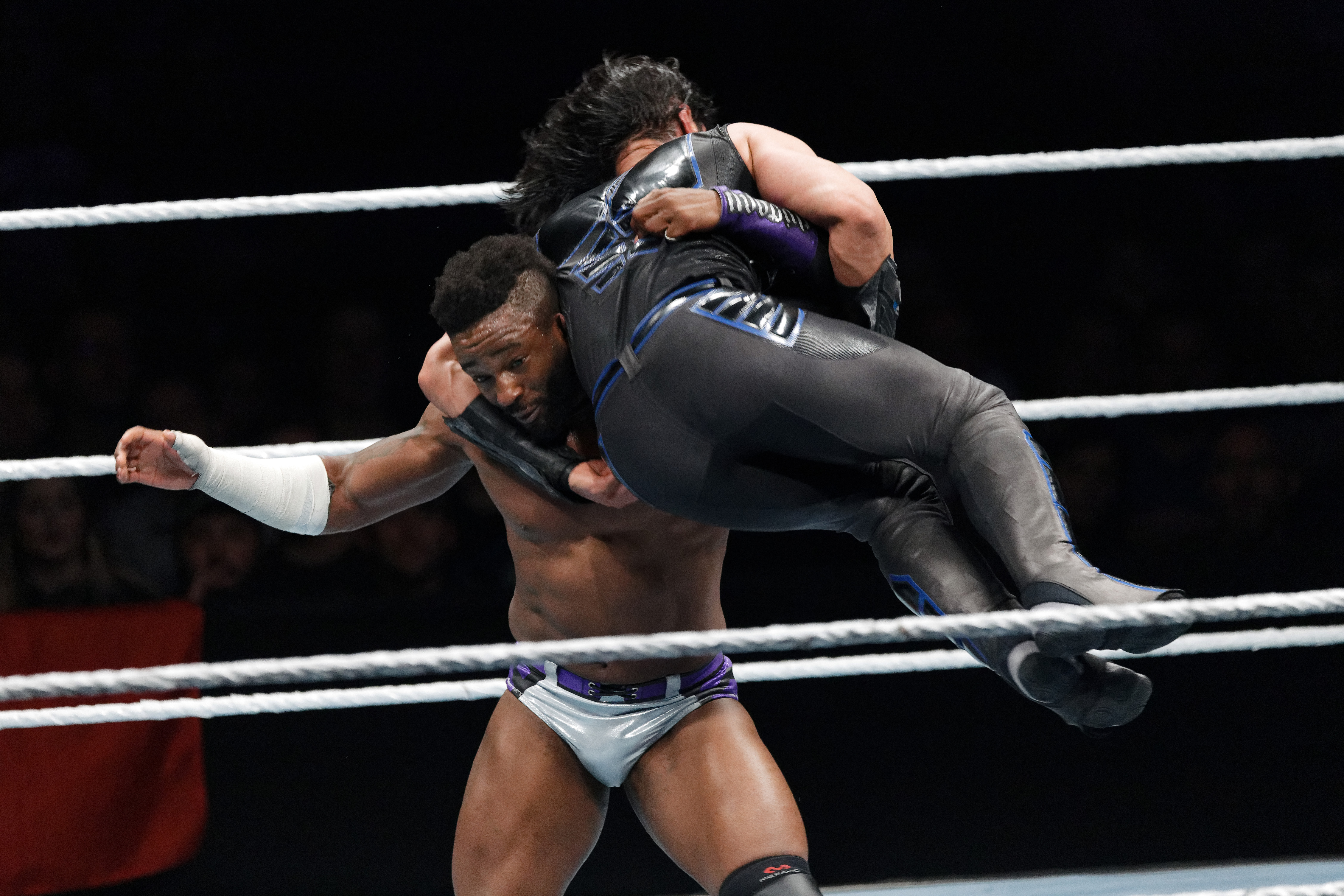
PARIS, FRANCE - MAY 19: Cedric Alexander (L) in action vs Mustafa Ali during WWE Live AccorHotels Arena Popb Paris Bercy on May 19, 2018 in Paris, France. (Photo by Sylvain Lefevre/Getty Images)
-
Mustafa Ali v Cedric Alexander
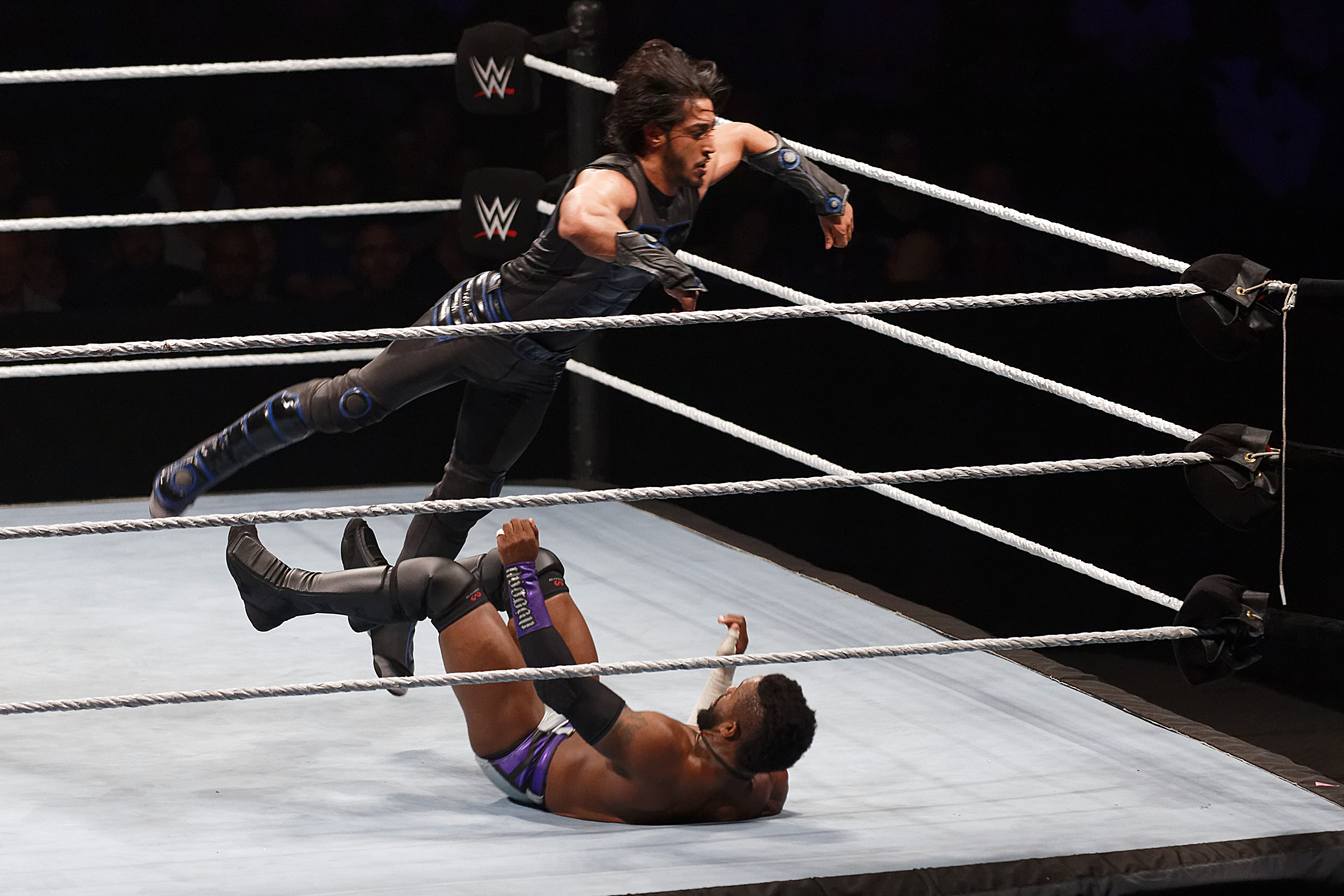
PARIS, FRANCE - MAY 19: Cedric Alexander (under) in action vs Mustafa Ali during WWE Live AccorHotels Arena Popb Paris Bercy on May 19, 2018 in Paris, France. (Photo by Sylvain Lefevre/Getty Images)
-
Mustafa Ali v Cedric Alexander
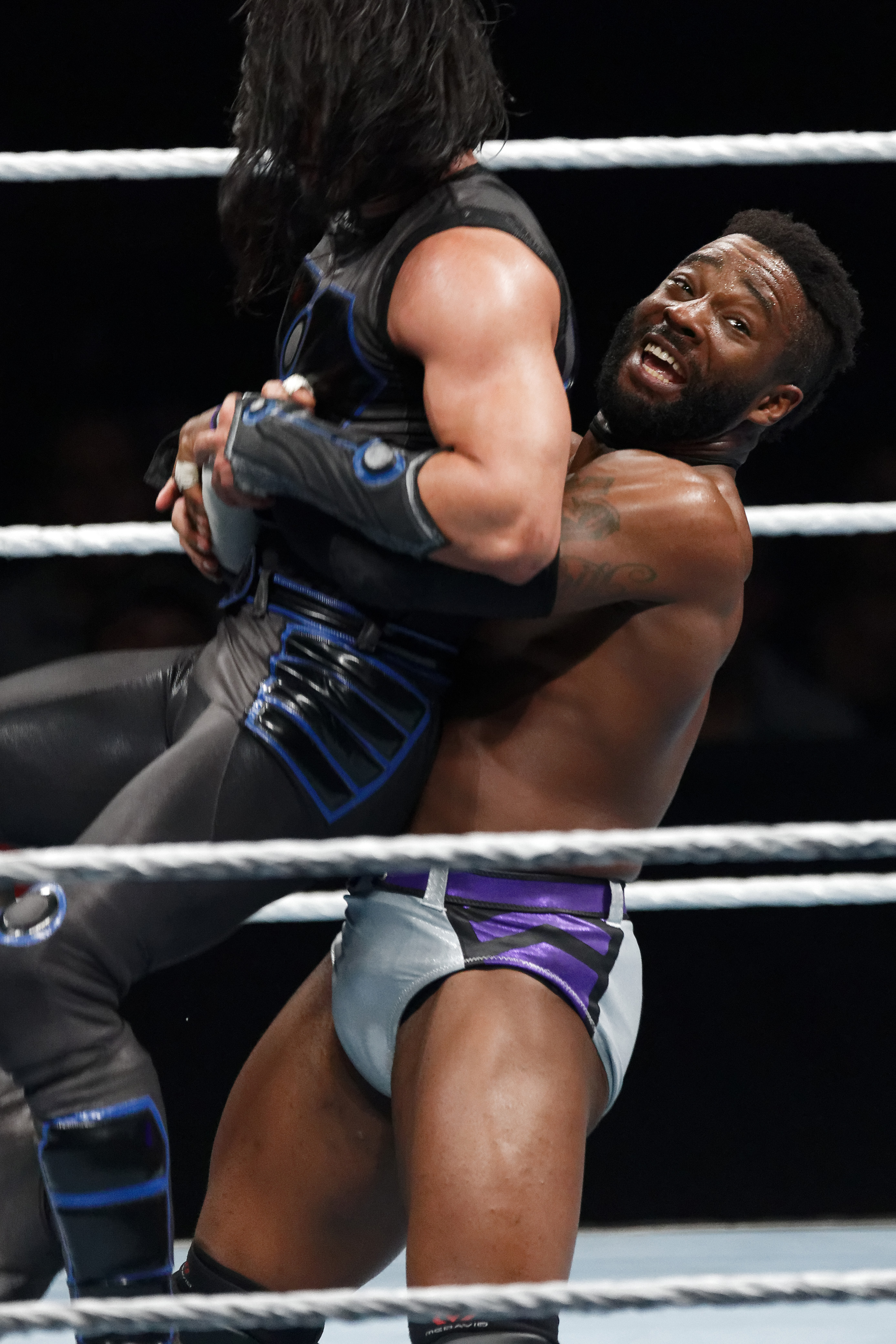
PARIS, FRANCE - MAY 19: Cedric Alexander (R) in action vs Mustafa Ali during WWE Live AccorHotels Arena Popb Paris Bercy on May 19, 2018 in Paris, France. (Photo by Sylvain Lefevre/Getty Images)
-
Mustafa Ali v Cedric Alexander
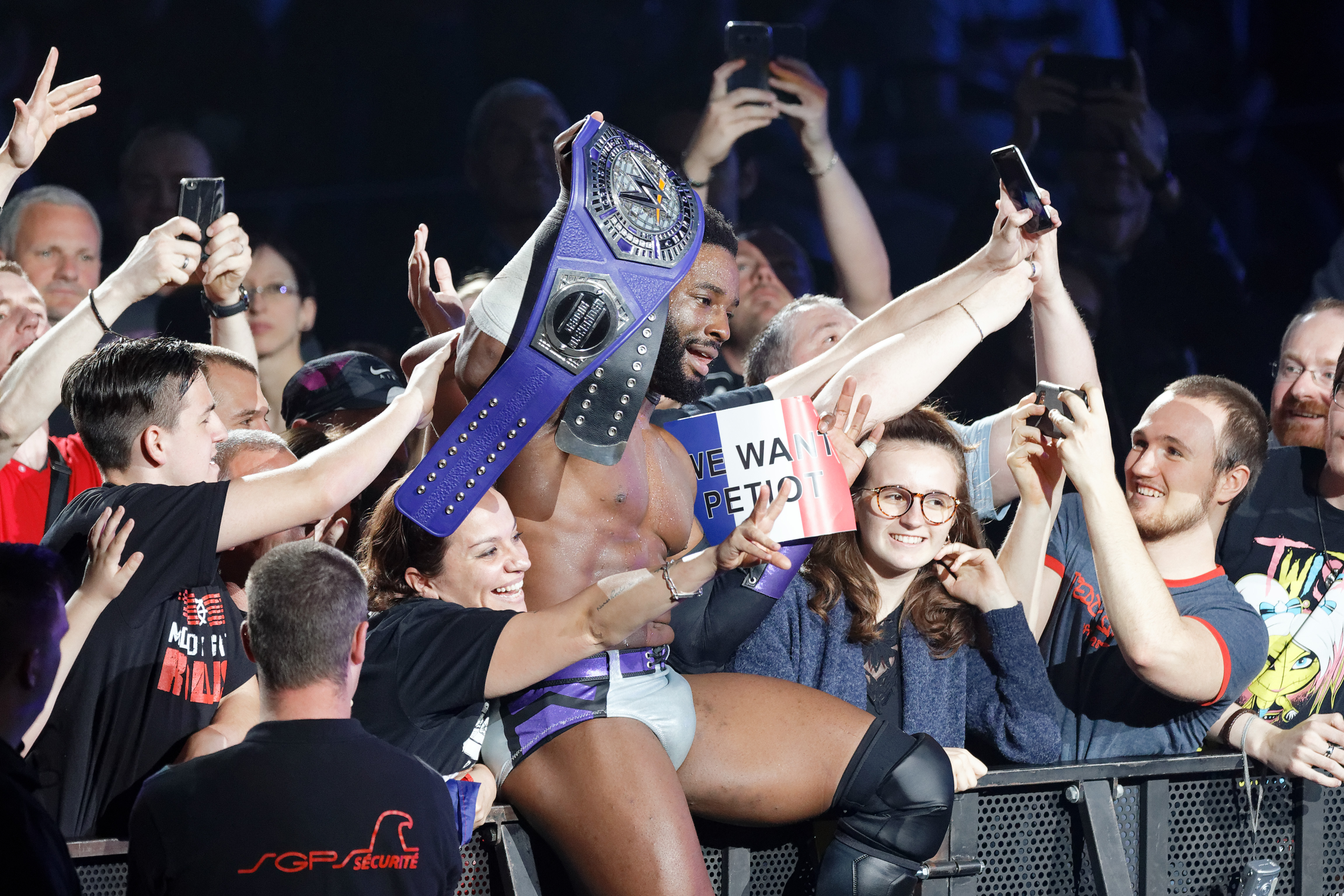
PARIS, FRANCE - MAY 19: Cedric Alexander attends WWE Live AccorHotels Arena Popb Paris Bercy on May 19, 2018 in Paris, France. (Photo by Sylvain Lefevre/Getty Images)
-
Mustafa Ali v Cedric Alexander
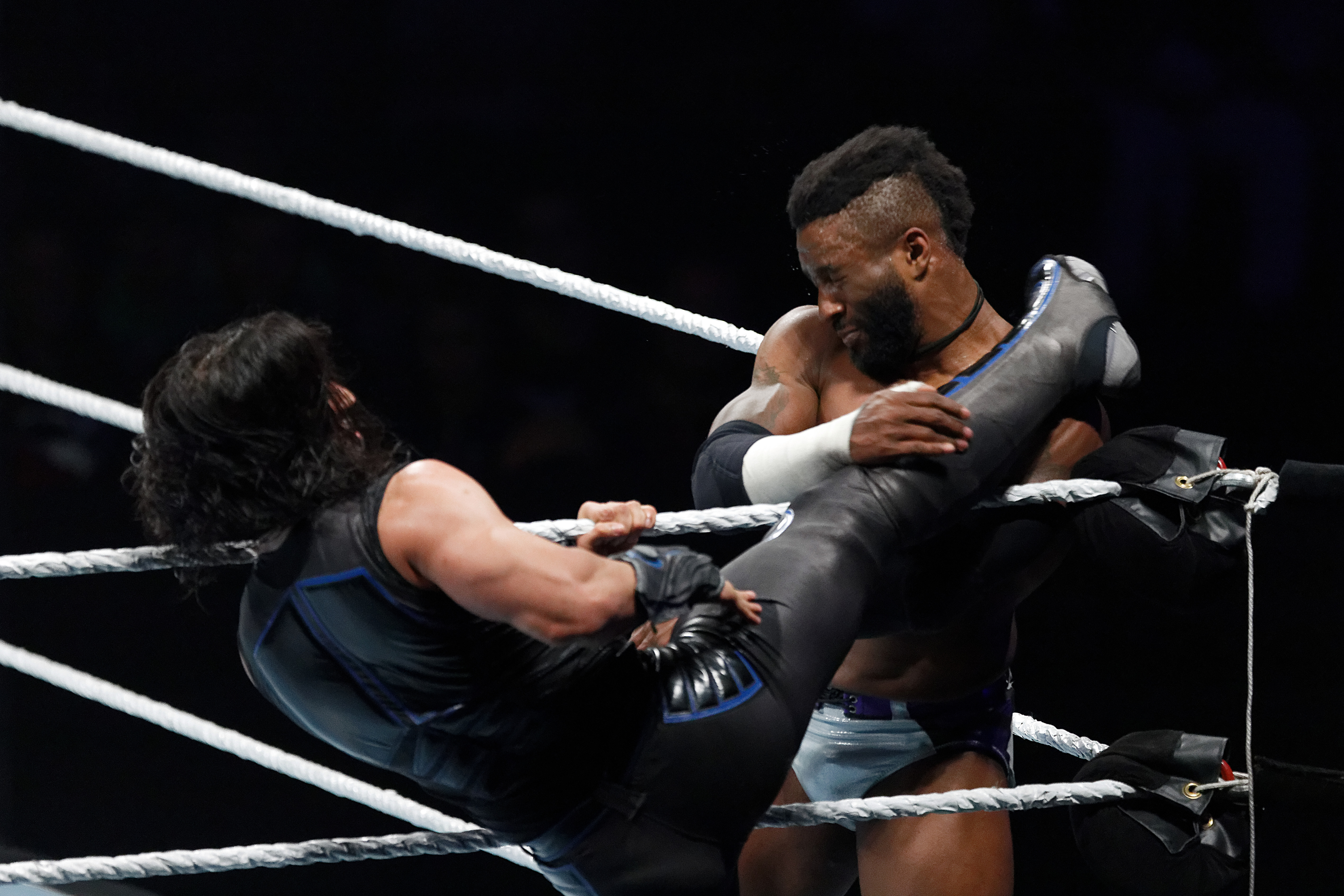
PARIS, FRANCE - MAY 19: Cedric Alexander (R) in action vs Mustafa Ali during WWE Live AccorHotels Arena Popb Paris Bercy on May 19, 2018 in Paris, France. (Photo by Sylvain Lefevre/Getty Images)
-
Mustafa Ali v Cedric Alexander
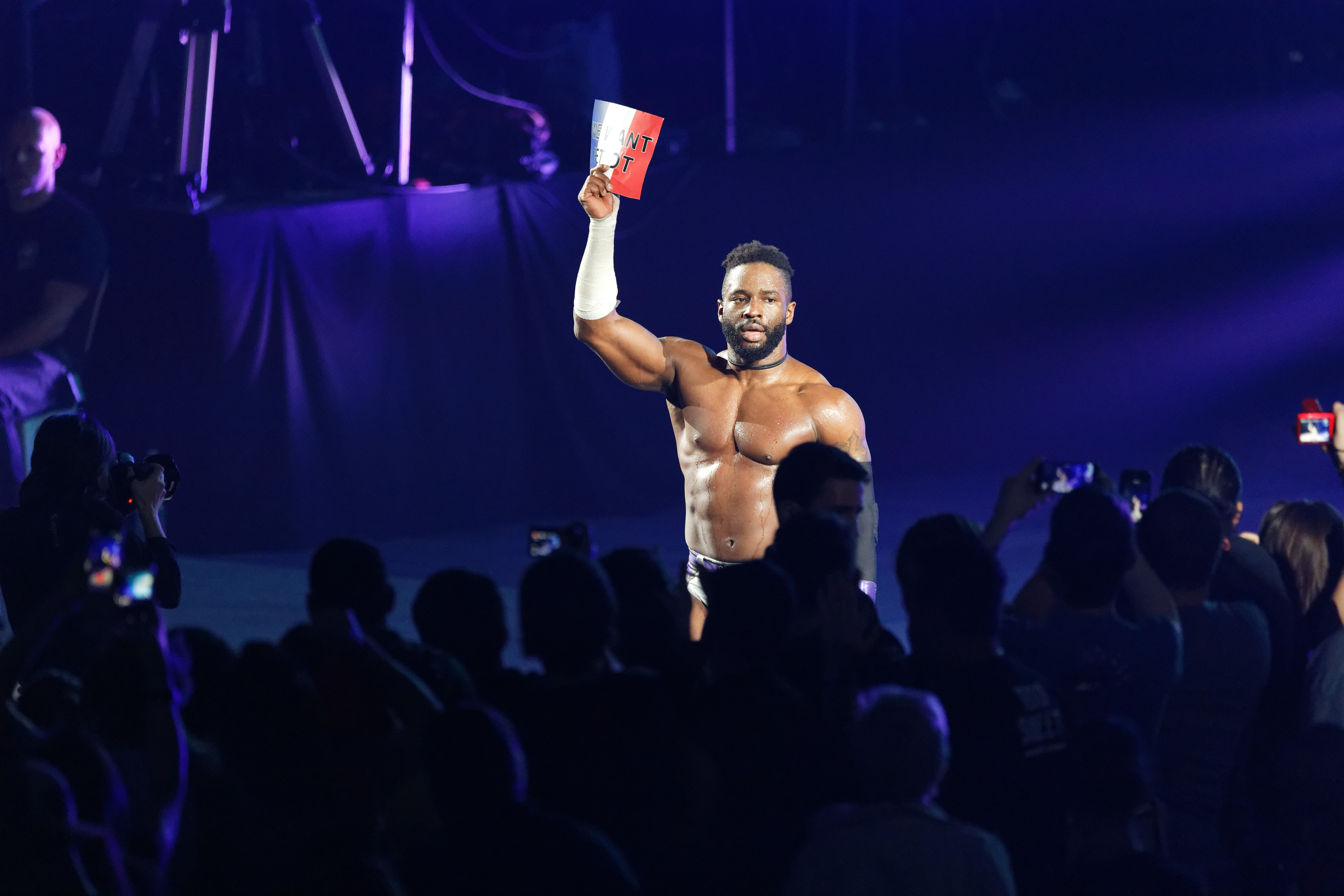
PARIS, FRANCE - MAY 19: Cedric Alexander attends WWE Live AccorHotels Arena Popb Paris Bercy on May 19, 2018 in Paris, France. (Photo by Sylvain Lefevre/Getty Images)
-
Mustafa Ali v Cedric Alexander
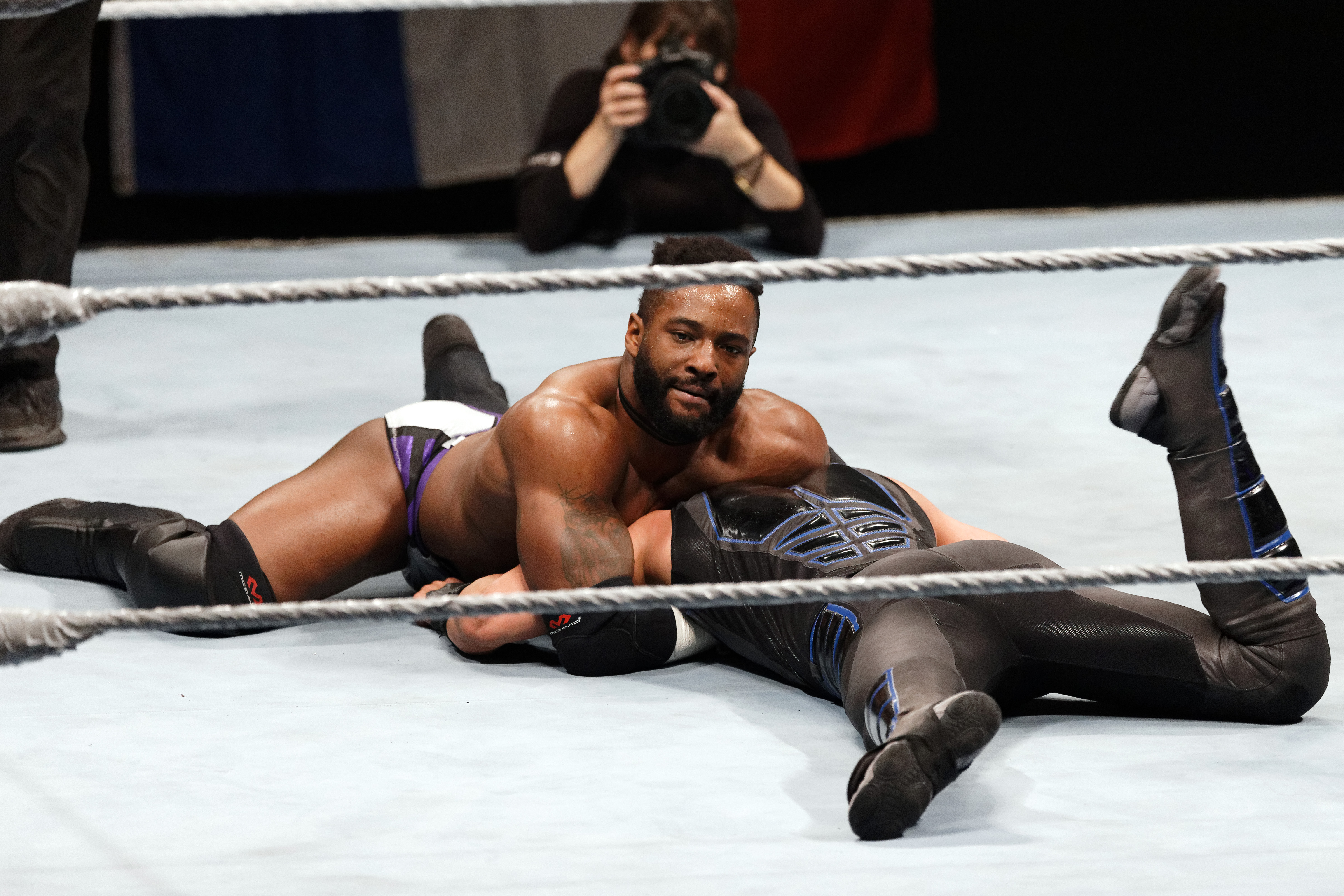
PARIS, FRANCE - MAY 19: Cedric Alexander (L) in action vs Mustafa Ali during WWE Live AccorHotels Arena Popb Paris Bercy on May 19, 2018 in Paris, France. (Photo by Sylvain Lefevre/Getty Images)
-
Mustafa Ali v Cedric Alexander
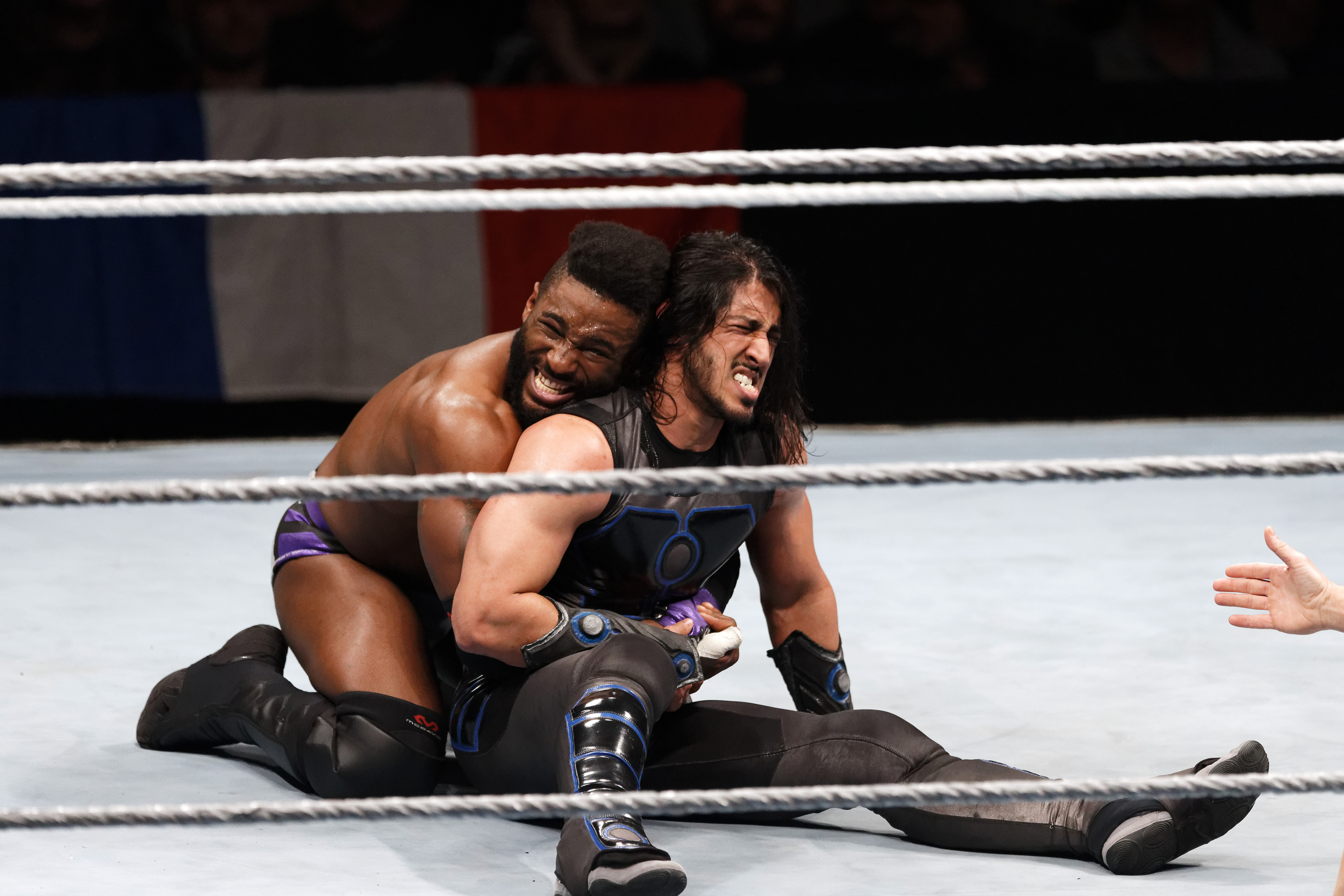
PARIS, FRANCE - MAY 19: Cedric Alexander (L) in action vs Mustafa Ali during WWE Live AccorHotels Arena Popb Paris Bercy on May 19, 2018 in Paris, France. (Photo by Sylvain Lefevre/Getty Images)
-
Mustafa Ali v Cedric Alexander
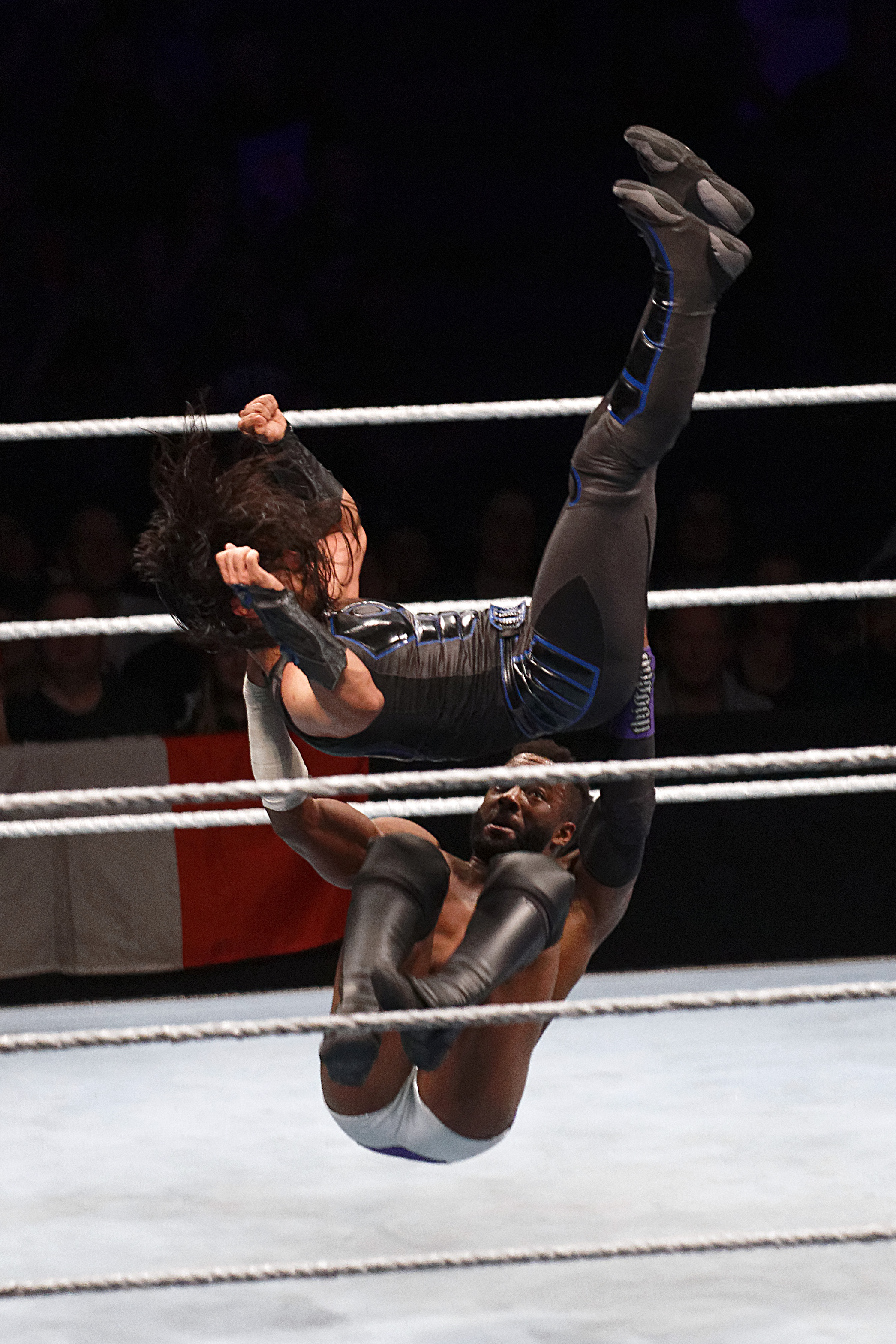
PARIS, FRANCE - MAY 19: Cedric Alexander (under) in action vs Mustafa Ali during WWE Live AccorHotels Arena Popb Paris Bercy on May 19, 2018 in Paris, France. (Photo by Sylvain Lefevre/Getty Images)
-
Mustafa Ali v Cedric Alexander
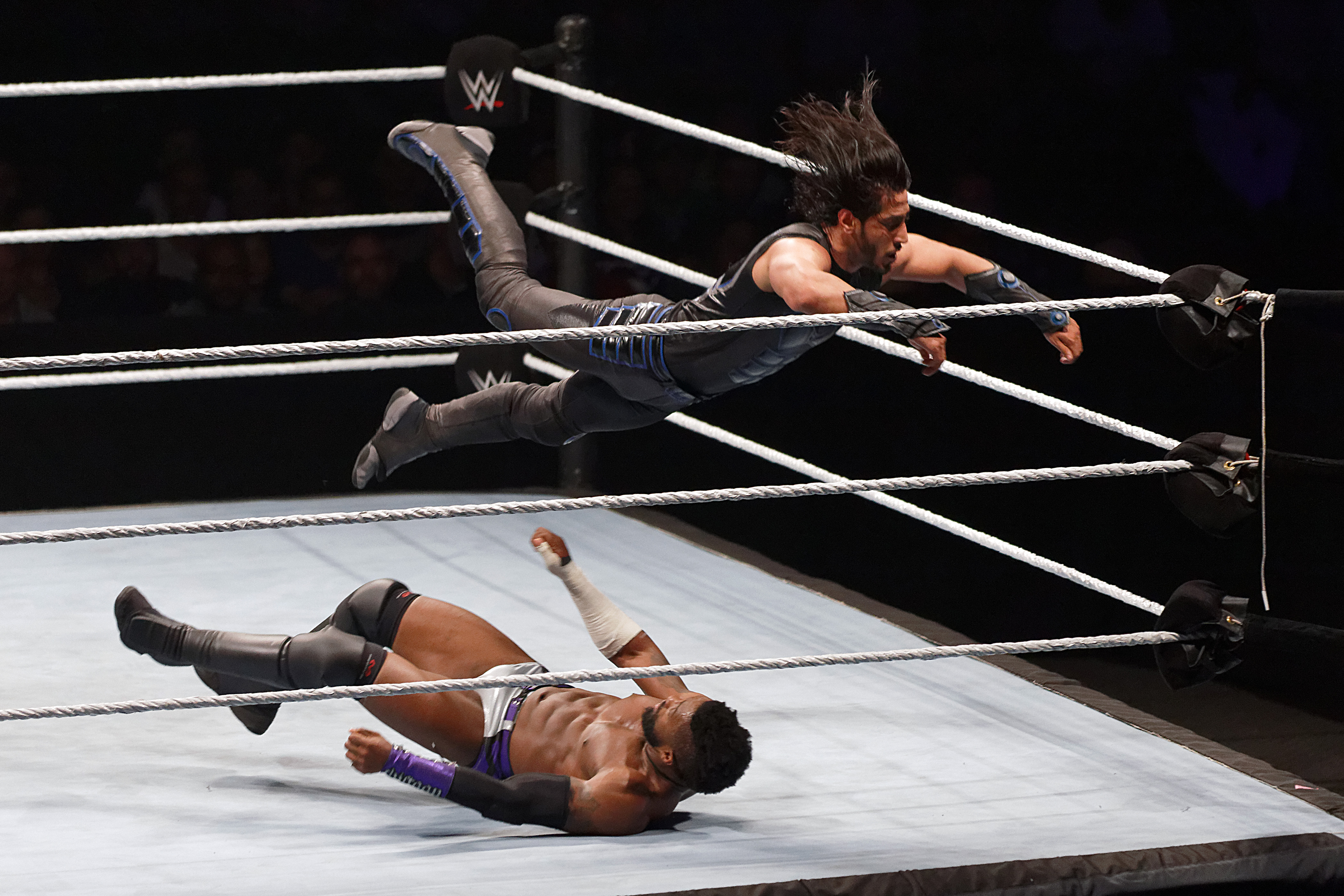
PARIS, FRANCE - MAY 19: Cedric Alexander (under) in action vs Mustafa Ali during WWE Live AccorHotels Arena Popb Paris Bercy on May 19, 2018 in Paris, France. (Photo by Sylvain Lefevre/Getty Images)
